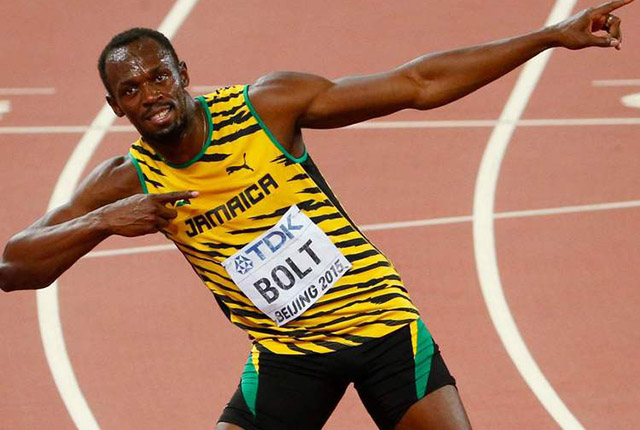‘We crossed borders to free Zimbabwe’

Tatenda Charamba Features Writer
In as much as we celebrate fallen heroes and heroines, those who survived the liberation struggle should equally be revered. It is due to their inconceivable sacrifices and efforts that we attained our independence as a nation.
It took brave hearts, passion and commitment to take part in the war of our liberation therefore not just anyone could do it.
The conditions that the colonised were exposed to were excruciating and unbearable. In difficult situations such as these, there was always an option of selling out and working together with the white colonisers just to get spared from the agony that colonisation brought with it but that was taboo to our heroes and heroines.
Today’s generation has not been exposed to the liberation struggle experiences and if they are to have a bright future as Zimbabwe, much effort has to be put to help the younger generations fathom their history.
Interaction with those who were involved in fighting for Zimbabwe’s freedom, knowing their worth and upholding them would do justice to our nation.
Representatives from the Zimbabwe National Association of Liberation War Veteran Cadres shared their experiences before and after the attainment of our independence with The Herald.
Cde Willas Chaneta said their organisation’s members were those who went to neighbouring countries for training but did not necessary fight on the front-line.
“Our organisation is of the people who went to neighbouring countries for the purposes of joining the armed struggle,” he said.
“All the people in the organisation were approved of by ZANLA and ZIPRA.
“After the approval process, we were placed in military structures named rear camps that were outside the country. The countries that were involved were Mozambique, Zambia and Botswana.”
Cde Chaneta explained that they had to find ways of protecting themselves from the white colonisers while they were at the camps.
The camps that these determined freedom fighters were in offered training that equipped them for the war. The fact that the colonisers’ ammunition was more efficient and modern did not kill the spirit of taking our country back that the warriors had.
“The activities done in the camps had full military content.
“We covered camp guard duty, drills, cover and crawl, bayonet fighting, enemy identification among others. Almost 75 percent of the military syllabus by then was covered in these camps.
“The training was supervised by camp commanders,” he said.
The equipment that these freedom fighters used for training highly punctuates their motivation of owning their country.
“We would use sticks for training. For further training, people would go to counties like China, Romania, Tanzania, Yugoslavia, Russia among others. Not anyone could go there, it was through appointment and the criterion that was used in appointing was consideration of one’s physical appearance.
“This was a disadvantage to those who had spent longer periods in camps because their states would have deteriorated due to the conditions in camps,” Cde Chaneta added
It was indeed inevitable to face challenges given the situation that these people were camping in foreign countries and had no guarantee of security. They had no one but themselves to look out for each other in those environments that were crippling. Cde Daniel Mwaemura, one of the cadres who went to war explained how they were vulnerable to diseases, hunger and even death.
“We would go without food for two weeks or even more. This was a great challenge because we needed energy to train,” he said.
“We would also find ourselves suffering from strange diseases and infections.
“These were mainly caused by insects such as lice. One would have hiccups, serious hiccups that you were not comprehensible. Diseases such as diarrhoea, malaria would seriously attack us.
“We were also at risk of losing our lives while at camps because Smith would bomb camps.”
The motivation during all those hardships was the hope of getting their own freedom one day and be able to enjoy the fruits of their blood, sweat and tears.
When Zimbabwe finally attained its independence in 1980, hopes escalated for these comrades.
They expected to march straight into their promised land but it was not as easy as they had anticipated.
Cde Chaneta said those who were outside the country when Zimbabwe attained its independence have not been recognised yet.
“When we got our independence, the purpose of camping had already been achieved so we had to stop whatever we were doing,” he said
“Those who were in the country are the ones who were immediately recognised and we were told to go back to our homes without demobilisation and recognition upon our arrival in the country.
“We are heartbroken by the fact that we are not recognised despite all that we went through, we have no voice, no one to talk to and we feel neglected.
“Our struggle is that when we went out of the country for war purposes, we left our families and could not protect them while we were away. Some of them are now crippled, others even died.
“This left wounds in our hearts and our children can see the sacrifices we made but they don’t have something that comforts them.”
Cde Chaneta said they will never leave Zanu-PF for any party because that is what they worked for.
“We rally behind his Excellency and we want to encourage others,” said Cde Chaneta.
“Zanu invested self-reliance, political education, skills, mass mobilisation which we used in 1980 and patriotism.
Zimbabwe National Association of Liberation War Veteran Cadres wishes to be recognised and benefit from the programmes that Government is availing to those that took part in the liberation struggle.
According to the registration that they carried out in 2013, only 25 percent of them are still alive and this is worrying because most died without recognition.







Comments